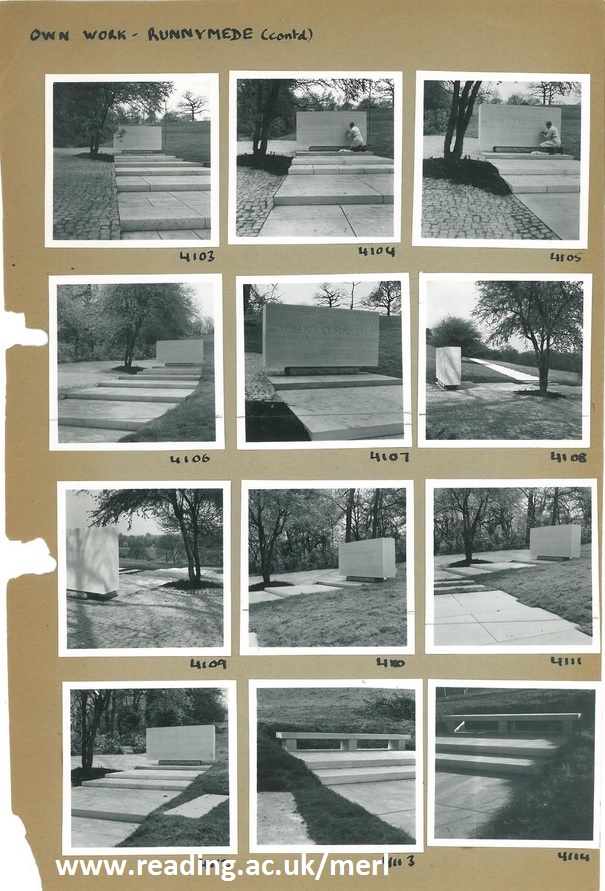Discovering the Landscape #16: Jellicoe's JFK memorial at Runnymede
Written by Claire Wooldridge, Project Senior Library Assistant: Landscape Institute

As the world marks the 800th anniversary of Magna Carta, Runnymede in Surrey (a water meadow alongside the Thames and the site at which King John sealed the charter as a peace treaty with rebellious barons) has understandably received a lot of media attention.
Due to Runnymede’s ideological association with democracy and freedom under the law as the site of the sealing of Magna Carta – Runnymede also became the site of several high profile memorials. This gives us the opportunity to explore our collections relating to Geoffrey Jellicoe’s J. F. Kennedy memorial gardens at Runnymede.

In 1963 Geoffrey Jellicoe was commission by the Crown to design the British memorial garden to J. F. Kennedy, which was constructed at Runnymede and was dedicated by the Queen in 1965. Through the design of the gardens, Jellicoe explored ideas relating to how art and landscapes can be subconsciously and symbolically connected through modern art.
The visitor enters Jellicoe’s memorial gardens for JFK through a gateway, which leads to a pathway and set of steps constructed using some 60,000 individual granite setts. The uneven nature of the path symbolises the ‘pilgrimage’ of those who visit to commemorate the life of JFK.

Upon reaching the top of the flight of steps in the garden, the visitor is presented with a Portland stone memorial tablet, designed by English sculptor Alan Collins, which is inscribed with text from JFK’s inaugural address:
“Let every Nation know, whether it wishes us well or ill, that we shall pay any price, bear any burden, meet any hardship, support any friend or oppose any foe, in order to assure the survival and success of liberty.”

Our Geoffrey Jellicoe collection (handlist here) features images of the memorial at Runnymede, as does our Susan Jellicoe photographic collection (handlist here), from which the images used in this blog post are taken.
For more information, see Harvey, Geoffrey Jellicoe (Landscape Design Trust: 1998) and Geoffrey Jellicoe’s entry in the Oxford Dictionary of National Biography. If you would like to visit us to view our collections in our reading room, or for any other queries, please contact us on: merl@reading.ac.uk.
